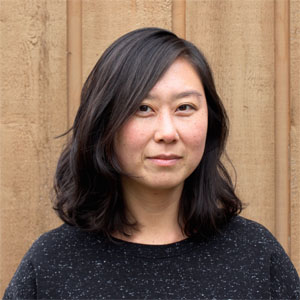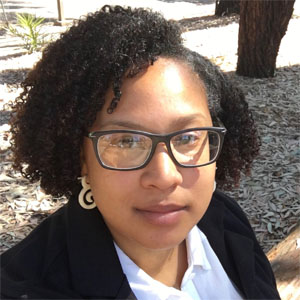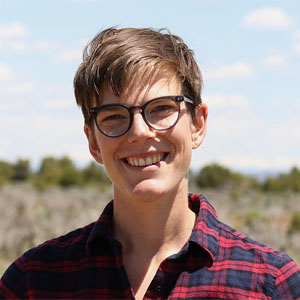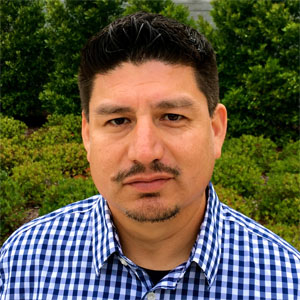CES Fellows 2019-2020
2019-2020 CES Fellows
Minju Bae
Minju’s dissertation, “One Rise, One Fall: Labor Organizing in New York’s Asian Communities since the 1970s,” investigates how Asian/Americans navigated the politics of work, racial difference, and the radical restructuring of the urban-based global economy. Through an ongoing oral history project that records and amplifies the voices of Asian/American labor organizers and rank-and-file activists, her research comes from listening to the experiences and concerns of many Asian/American New Yorkers. “One Rise, One Fall” travels through multiple industries. Opening with a study of Asian/American building tradesmen and their fight for community control and affirmative action on construction sites in the mid-1970s, her research examines organizing strategies in midst of Asian/American laborers’ varied circumstances of citizenship, race, class, and gender. She also travels to the Chinese restaurant industry where organizers attempted to unionize new immigrants in the service economy in the 1980s, as well as to the garment industry where garment workers’ demanded fair piece rates despite the logics of a global supply chain in the early 2000s. Her research reveals the capacities and tensions of labor activism in grassroots organizations and worker centers, as well as labor unions, since the 1970s. Her work has been supported by the Center for the United States and the Cold War, the Mellon Foundation, the Asian Pacific American Labor Alliance, and CAAAV: Organizing Asian Communities. Minju is also a Visiting Scholar at the Asian/Pacific/American Institute at New York University.
Jasmine H. Benjamin
She was born and raised in New Orleans, Louisiana and her dissertation interests were shaped watching media portrayals and delayed government response during Hurricane Katrina. Her dissertation uses Angela Onwuachi-Willig's (2016) theory of "trauma of the routine" to examine how events of police misconduct in Chicago impact Black political attitudes towards local government officials in Chicago.
She previously served as the Justice Fellow at the Field Foundation of Illinois where she assisted with the grant-making process, she evaluated grants, conducted site visits, and made recommendations for funding in the Justice portfolio. She was a UChicago Urban Doctoral Fellow and also part of the University of Pennsylvania Predissertation Fellowship for the Summer Institute on Inequality. Jasmine has worked to improve programming and resources available for graduate students of color at her university. For three years she served as a Higher Education Intern for Diversity and Inclusion at UChicagoGRAD and was part of the leadership of the Diversity Advisory Board at UChicagoGRAD. During her time as a higher education intern, she was one of the founders and lead organizers of the Transcending Boundaries Research Symposium held at the University of Chicago in 2016 and 2017. She was a Mellon Mays Undergraduate Fellow and participated in the Leadership Alliance. She earned a Bachelor's degree in Politics and Justice Studies from Claflin University in 2013 and a Master’s Degree in Political Science from the University of Chicago in 2016.
Chryl N. E. Corbin
As an urban environmentalist and political ecologist, Corbin examines the relationships between society and nature within the built environment by investigating the concept of the green city within the context of the United States. Her dissertation focuses on how the relationships between race, class, and access to green space have changed from 1960—prior to the Civil Rights Acts—to 2019, after Oakland, California began establishing its sustainability agenda and during an intensifying gentrification process. Corbin questions how environmental policies and practices in green cities are impacting the lived experiences of low-income residents and communities of color and their access to public green spaces today and what that could mean for future populations living in green cities. As the chair of the City of Oakland Parks and Recreation Advisory Commission (PRAC) Corbin serves her community through civic engagement by researching, reporting, and making recommendations to City Council on Park and Recreation policies and as the PRAC liaison to three Recreation Advisory Councils, the local community park stewards. Corbin is also an executive committee member of the California Outdoor Engagement Coalition focused on getting youth who reflect the overall demographics of California into the outdoors by providing transformational experiences.
Silas Grant
Silas Grant studies the relationship between oil and gas extraction and settler jurisdiction in northwestern New Mexico’s San Juan Basin. In this region, a recent fracking boom has brought extraction deeper into the Greater Chaco landscape, held sacred by Diné (Navajo) communities living in the area and by Pueblo Nations throughout New Mexico.
The legacies of the Allotment Era have produced a highly-fragmented pattern of jurisdiction over both surface land and subsurface minerals in this checkerboard landscape, where alternating tracts of land are complexly administered by federal, tribal, state, and private entities. Jurisdiction not only has profound implications for where, how, and if extraction takes place: it also affects who gets to have a say in the process.
Drawing on two years of ethnographic and archival research in northwestern New Mexico and in Eastern Navajo Agency, Silas’s research analyzes how different jurisdictions parse out components of the region’s ecology for management purposes. Silas attends to both the extra-local and large-scale cumulative effects of extraction that are not contained by the jurisdictions that exist to manage them. Silas’s dissertation traces how relations of sovereignty, territory, and ordinary life are shaped in part through frictions engendered in contests to control energy extraction. Originally from Halifax, Nova Scotia, Silas earned a BA in International Development Studies from Dalhousie University and an MA in Geography from the University of Toronto. Silas came their dissertation research through involvement in the climate justice movement.
Joss Greene
Joss studies state punishment of gender and sexual variance, with a focus on transgender experiences with the criminal justice system. His dissertation traces prison regulation of gender-nonconformity in California from 1941-2018, drawing on archival research, oral histories, and 13 months of ethnography in trans prisoner advocacy organizations. By situating contemporary struggles over transgender prison policy within this longer lineage of gendered penal control and prisoner resistance, Joss contextualizes our current moment and invites us to learn from successes, setbacks, and unintended consequences of the past.
In addition to his sociological training, Joss has developed his analysis of state violence against trans people based on his own experiences doing trans prisoner advocacy since 2013. He has been a regular volunteer with organizations in the Bay Area, including the Transgender Gender variant Intersex Justice Project, and most recently served as a core collective member with the Sylvia Rivera Law Project. His relationships with organizers and currently incarcerated people motivate him to understand changes in carceral control and how people resist it.
Joss believes that engaged scholarship is a politically powerful tool. To this end, he supports organizations in designing and implementing their own research, leads community workshops based on his data, and has presented his findings to California government officials at the city, county, and state level. He is currently collaborating with a community organizer on the first national research looking at transgender women of color's experiences in the labor market.
Salvador Rangel
Salvador Rangel came to the United States as an undocumented immigrant. After various years working in the construction and manufacturing sectors, he made his way into higher education, first obtaining a GED and then attending community college. He went on to obtain a BA from Eastern Kentucky University and an MA at the University of Kentucky. His previous hands-on experience animates and informs his current research. His dissertation, “La Jungla: Globalization, Transnational Migrant Labor, and the Meatpacking Industry,” combines ethnographic methodology with macro-level analysis of the changing conditions under global capitalism. His research interests include global political economy, globalization, race, immigration and citizenship. Salvador is a fellow of the American Sociological Association’s Minority Fellowship Program. Outside the academy, Salvador strives to engage in public sociology by publishing analytical and opinion pieces in mass media outlets, such as Truthout and Counterpunch, that aim to make his research accessible to a broader public.
2019-2020 Honorable Mentions
Robert Chlala
To many, the initial unfolding of cannabis legalization in the United States appeared to be a typical case of relentless commodification privileging mostly-white elites. But then came California. Among other progressive cannabis-related policies, state regulations for the industry have enshrined stringent labor and environmental protections. Los Angeles, the U.S.’s largest cannabis market, is pioneering a social equity program guaranteeing cannabis licenses and jobs for those from neighborhoods hard-hit by the “war on drugs.”
These transformations raise critical questions that animate my dissertation: how do social movements shape the socio-spatial organization of markets? How are these processes entwined with socially-constructed, place-based relations of difference?
To answer to these questions and explore the progressive potentialities they can inform, I engaged in more than four years of participant observation with Angeleno labor and racial/economic justice groups in cannabis and conducted 75 semi-structured interviews with workers, owners, and organizers. Bridging feminist political-economic geography and economic sociology, my data suggests movements are more than external forces to markets. They operate within and affect daily practices in markets — remaking transactional forms, industrial knowledge and labor relations. Crucial to the influence of movements is the ways organizations confront power relations, anchored in place and constructions of difference (i.e. race, gender, sexuality), that underpin markets. As part of my commitments as a scholar from affected communities, I have published this data in reports and media/films with movement organizations and worked to help shape social equity policies in ways that foreground the experiences of low-income, communities of color at the front lines of cannabis-work - and a changing carceral landscape.






